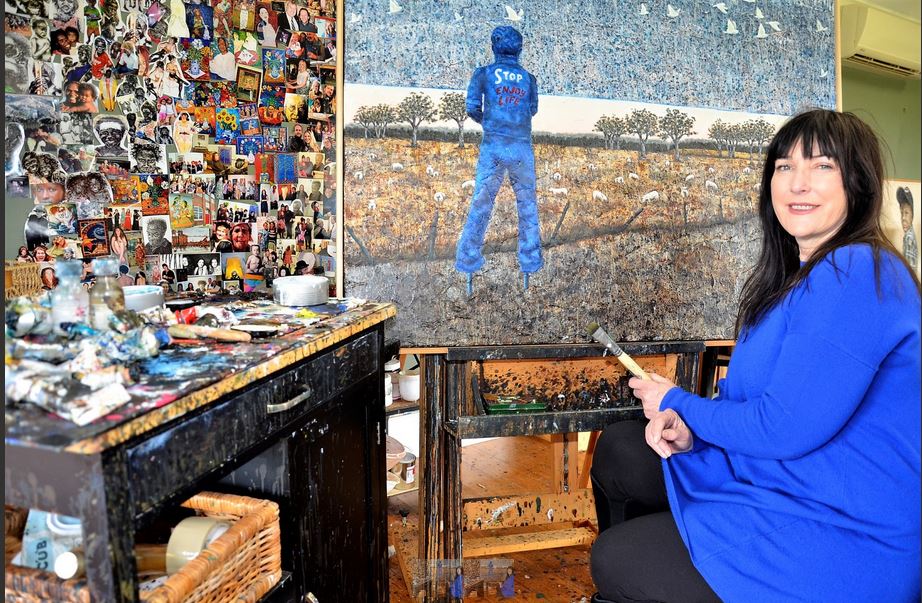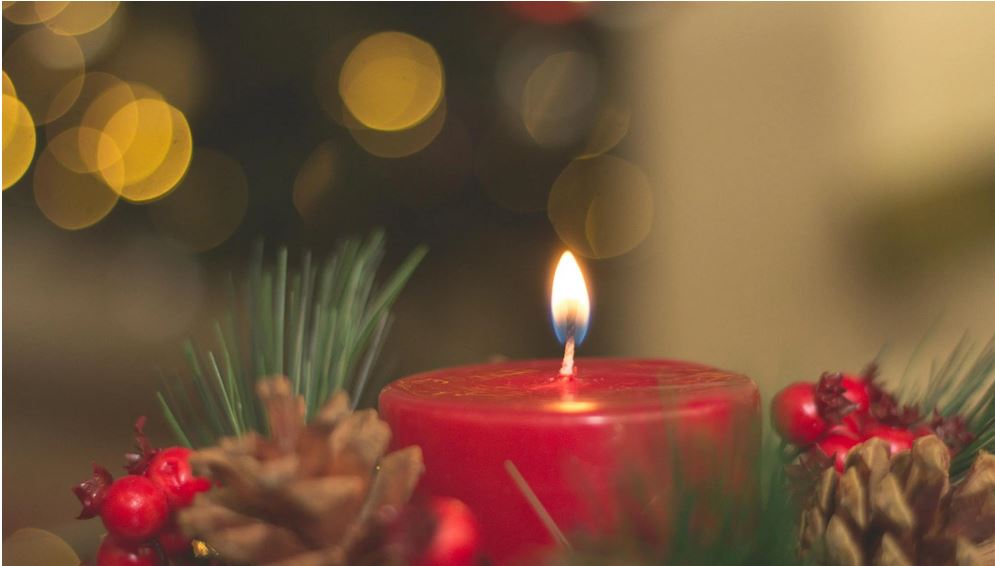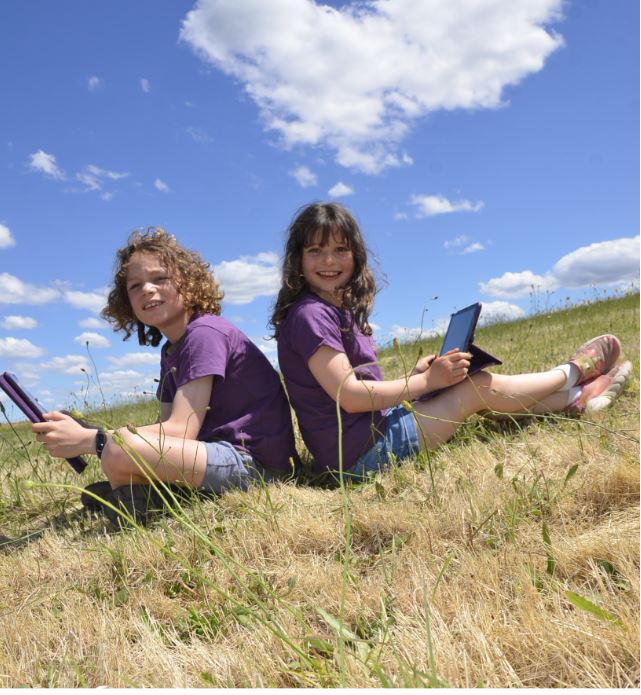September 3rd, 2023Artists of the Central Highlands
with Eve Lamb

Rose Wilson’s prodigious artistic talent for creating captivating portraiture has seen her make the finals of some of the nation’s most prestigious arts awards including the Archibald Prize. This acclaimed Trentham artist is also renown for her impressionistic paintings paying homage to the natural environment and to the living creatures that inhabit it.
Eve: Hi Rose. When and how did you become aware that you have this wonderful capacity for creating art to which others respond strongly?
Rose: As a child I drew a lot, no different from most kids my age. But when I started getting paid with icy poles and vanilla slices for drawing other kids’ school projects I knew I was onto something. My fascination with the face and eyes started early as well. I was an average student so I’d doodle faces and eyes all the time especially during school. Unfortunately my passion for drawing was inhibited during high school and the thought of being an artist was a distant fantasy. I did what everyone else did back then, finish school and get a job.
Eve: What has your personal arts journey involved in terms of nurturing that innate talent?
Rose: My passion for art lay dormant for many years until I traveled to Italy to see the World Cup in 1991. Being a tourist I found myself visiting the Sistine Chapel. Once inside I found myself surrounded by magnificent frescos covering the chapel’s ceilings and massive religious paintings towering above me. I was in awe. Something was unleashed within me that day and that experience was the catalyst that paved the way for my artistic journey. When I returned to Sydney I enrolled in Darlinghurst Arts School and the rest is history. I travelled around Australia. I lived in Arnhem land. I studied at Darwin Uni and Newcastle, and then we moved here.
Eve: How do you happen to live at Trentham and how long have you had your home and studio here now?
Rose: My partner of 35 years is a pilot so we moved around the country a lot. We had a pact; we either live in the city or the country, but nothing in-between. After a two-year stint in an inner suburb of Melbourne, we decided to go country. We always thought we’d move again, but we fell in love with Trentham and its community. It’s been 20 years now and we are besotted with our little slice of paradise. Twelve years ago a group of like-minded local artists founded the Little Gallery, an artist-run space in Trentham that has been a wonderful addition to the town and is supported by all the locals.
Eve: Which artists have influenced your work?
Rose: My biggest influence was while living in east Arnhem Land. I would often sit with one of the elders from the Murrungun clan while he painted. He’d often tell the story of what he was painting, and I felt privileged to have had that opportunity. Frida Khalo was another, for her visual narrative and strong symbolism as well. Both artists had a major influence in my storytelling through art.
Eve: What is your media of choice?
Rose: Oil. When painting landscape I tend to under-paint with thick textured paint, and scrape back harshly so I need the paint to move slightly. With acrylic it is too hard. With portraiture I use my hands a lot to apply the paint. I’m sure it’s not good for me, but I’m still here and haven’t gone mad from pigments yet!
Eve: What are your subject matter of choice? Why so?
Rose: I flip between landscape and portraiture. I only started landscape when I moved here. The bush has a way of beckoning you, demanding you give it attention. Although my landscapes are more visceral and impressionistic in their execution, my portraits are more realistic as I try to capture the inner character of the sitter. They often demand more attention than the bush.
Eve: Have you ever worked in any other areas besides working as an artist, Rose?
Rose: I found my artistic vocation late. I was 28 when I visited Rome. Before then I worked in finance and sales, in the textile industry and consultancy of all things. I also wanted to become the next Prue Acton as I loved to design clothing. But pattern making did my head in so I dropped out of Tafe and went to Italy instead to see the soccer. Luckily I did as it changed my life! But perhaps it would have found a way to come back to me no matter what?
Eve: What are you working on at the moment?
Rose: I’m pushing my landscapes as far as I can, experimenting with different content and technique, as with my portraiture. My landscapes have been popular but I believe you need to challenge yourself. Painting the same thing over and over because there is a market for it may be great for the bank balance yet it’s appalling for the soul and I want to keep my soul intact.
Eve: What work, goals or projects do you have in mind for the future?
Rose: Portraiture is my first love and I will always continue to work on it and push it further. For years I worked monochromatically but now I’m enjoying new challenges especially using a coloured palette. I’d like to think painting in colour came naturally but there’s a technical side to it and I’m continually experimenting, and will continue to do so until I feel confident in that.
Eve: When you work in the studio do you like to play music and if so what is your music of choice?
Rose: I’m so, so eclectic. You could never tell my personality through my music. I play just about any genre yet sway towards the ‘70s, ‘80s and ‘90s, my era. The only thing I don’t listen to is Screamo.
Eve: To date, what have been your career highlights as an artist?
Rose: Being a finalist in the Archibald is right up there. That was a real hoot. I’ve been lucky enough to have been a finalist in many major portrait prizes, hopefully one day I’ll be the bride and not just the bridesmaid. Ha! It’s a tough gig, art competition, these days, with entries exceeding well over 1000 and I’m a realist. So if I never get into the Archibald again at least I can take solace that I did that once – in one of the biggest portraiture prizes in Australia.
The other highlight was painting the Disappearing Farmers Series highlighting the struggles of local farmers and how they are slowly diminishing. It first went to the MAMA gallery in Albury. It was nerve-racking to be exhibiting in my home town, but a proud moment for my family. The exhibition then came home to Trentham and was hosted at the Cosmo, the only place large enough to exhibit the 17 large paintings of farmers and their working dogs. It was attended by a ridiculous amount of people and the farmers felt like rock stars, rekindling the recognition they once had and deserved.
Eve: Do you have any exhibitions or special arts events coming up that you would like to let others know about?
Rose: The gallery that I’m affiliated with, Little Gallery, just had a very successful art fundraising exhibition called the Winter Show and we hope to do another exhibition for our Summer Show and invite artists to exhibit. So watch this space. I also will compete in various art prizes. It’s become a slight addiction, once you’ve been chosen as a finalist, but time restricts entering all the ones I want to.
Eve: What would you rate as the biggest challenges in being a professional working artist today?
Rose: The stigma around being an artist, and a female artist at that. It is often classified as just a hobby. It’s my life and my work. Finally, after painting for over 30 years, I’m gaining the rewards for my dedication. People often ask me ‘how long did that painting take?’ which pisses me off. But I answer, ‘mmmmm about a couple of days. But add 30 or so years on top of that’.
Another challenge is keeping the gallery afloat, especially through tough times. But fortunately it’s an artist-run space and it’s held together because of that. I’ve always said every town, no matter how small should have a gallery, not just to showcase local art, but to give a platform for country artists whom otherwise would find it difficult in the larger cities.
Eve: And, for you personally, the greatest rewards?
Rose: Personally for me, my art gives me great purpose and I can’t see my life without it. Even though I struggle with time and working in the studio is a luxury, once there I find it hard to leave. I get caught up with the moment, and I get totally lost in time. #
The greatest reward anyone can give me is when a viewer stands before a piece of art and they totally resinate with it and become emotionally moved by what they see, regardless if it’s mine or not. We paint and create to share our vision, our story and our love for the arts.










